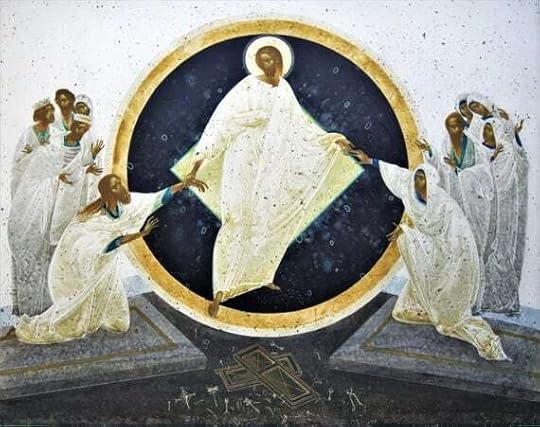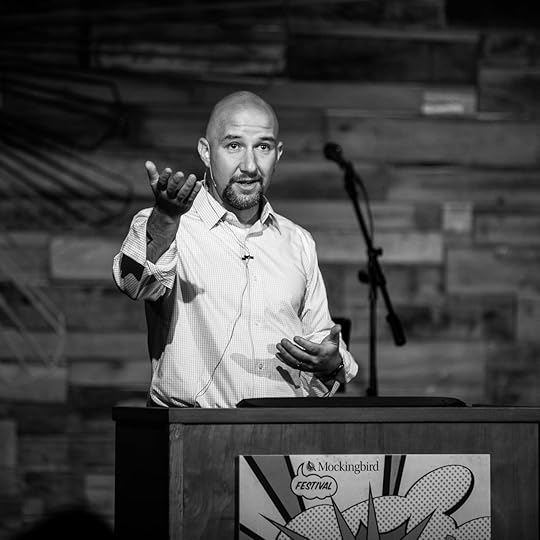You Weren't Left Behind; the Promise is Not the Rapture

If you appreciate the work, pay it forward. Literally! Become a paid subscriber.
Preachers can seldom to point to obvious wins.
However I count it an accomplishment that, several years ago, when the denominational powers-that-be pressed my congregation to complete a “Real Discipleship Survey” a statistically significant number of them protested. “You should ask my neighbor, not me!” one of them replied— to my gleeful pride. I also cherish the memory of a sermon on the Dishonest Manager that elicited heckling from a listener. More recently, I patted myself on the back that I have somehow managed to preach, teach, and pastor totally oblivious to the memes and trending stories of Christian culture; specifically, I had no idea another specious prediction of the Rapture had been augured by grifting soothsayers on TikTok.
According to The NY Times, this prediction of the Parousia was as banal our present dystopian storyline. Jesus apparently announced to a random believer in South Africa that the Rapture had been calibrated to the coming FIFA World Cup. Though I did not initially understand the snarky Christian memes mocking the anticipation of the Second Advent, I figure it’s not too late to point out what is wrong in the popular Christian imagination when it comes to the Fulfillment. After all, Advent— what Fleming Rutledge calls the Eschatological Season— is right around the corner.
A key verse from the Book of Hebrews reveals the disconnect between Christian kitsch and gospel promise:
The language of the Second Coming leads us away from the claims of the scriptures.“So Christ, having been offered once to bear the sins of many, will appear a second time, not to deal with sin but to save those who are eagerly waiting for him.”
The End is not the arrival of a heretofore distant Jesus. Just as he vanishes from the sight of the disciples on the Road to Emmaus and just as he offers himself to Thomas after Easter, Jesus will appear. That is, his present presence with us— among us— will be made visible.
The problem with End Times predictions is not so much their scheduling (in violation of Christ’s clear command to abstain from such speculation) but in the way they speak of Christ’s Second Advent in ways that imply Jesus has left us
Our hope rests in Christ’s appearing not coming back.
Quite simply, the gospel never imagines a world in which Christ is absent. He has not gone on a long journey, watching from afar until the clock strikes the End. As Robert Jenson insists, “God is not an invisible and timeless substance but a specific event: the mutual life of the Father, Son, and Holy Spirit.”
Christ is not elsewhere.The Risen LORD is the one who “happens” to his people—the risen Jesus whose presence structures the very time in which we live. Thus, his parousia is not a matter of coming back from a distance but of appearing from the hiddenness in which he is already with us. This is why it is misleading—perhaps even dangerous—to speak of his return as if he had left. Against the popular imagination fueled by rapture predictions, we must learn to speak in biblical and theological terms.
The Risen Jesus is not an Absentee Landlord who will finally show up to check on the property.He appears as the one who has been with us all along, even when unrecognized, even when veiled. His appearing is the unveiling of the One who already accompanies us, who is with us “always, to the end of the age.”
The Russian Orthodox theologian Sergei Bulgakov helps clarify this in his book on the Parousia. The Parousia, he writes, is not a single event plotted as the final dot on history’s timeline. Rather, it is apocalyptic—breaking in from God’s eternity into all times and places. Christ’s manifestations throughout the church’s life—the Eucharist in which he gives himself, the Spirit’s work that creates the church, the visions granted to saints, martyrs, and believers—are anticipations and real presences of that one great Appearing that will gather them all up.
Every prayer of the church is no less wondrous than the so-called Rapture.
To every “Come, Lord Jesus,” the Risen Jesus replies, “Behold, I come quickly.”
Christ’s presence is never deferred to some inscrutable date.
It is always contemporary.
Speculation about the End too often imagines the Fulfillment as the cessation or abandonment of all that God has made (minus a frighteningly vague remainder). But the biblical hope— the claim of the gospel— is that Christ’s appearing will inaugurate nothing less than the transfiguration of all things—time, space, matter—into God’s own eternal life.
In Jenson’s words:
“The last judgment is not a mere forensic act but the advent of the End, in which creation is perfected as the theater of God’s Triune life.”
Jesus is not distant now.
Nor is he interested in relocating some of you elsewhere.
The End really is the Fulfillment, the transformation of all things into the life of God— that’s freaking Corinthians, if you don’t believe me.
In the meantime, as I usually say at the altar table, Christ’s being-with-us is not on pause while we wait for the End. It is the world’s present tense. His fullness is happening to us even now, in word and sacrament.
Again, a plain reading of the New Testament rules out the Second Advent as the return of the absent Jesus. In the New Testament, the risen body of Jesus is never spoken of as a private, free-floating reality. It is always and only encountered as baptized believers gathered around loaf and cup. The church is not merely waiting for Christ; the church is the site of his risen body, already given to the world.
The church is not merely waiting for Christ; the church is the site of his risen body, already given to the world.
To speak of Christ’s parousia apart from this Eucharistic reality is to speak of a Christ other than the one the apostles proclaimed.Just so, against the fever and fear stirred up by Rapture predictions, we confess something steadier, stranger, and far more hopeful.
Jesus will appear.Not as a stranger returning from exile, but as the Lord who has been with us, hidden, all along. His final appearing will unveil what has always been true—that the world’s End is not absence but presence, not escape but communion, not abandonment but the promise of God made perfect.
 Get more from Jason Micheli in the Substack appAvailable for iOS and AndroidGet the app
Get more from Jason Micheli in the Substack appAvailable for iOS and AndroidGet the app
Jason Micheli's Blog
- Jason Micheli's profile
- 13 followers



